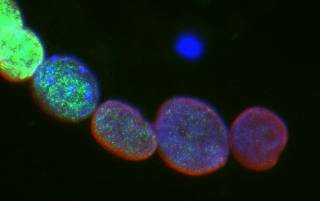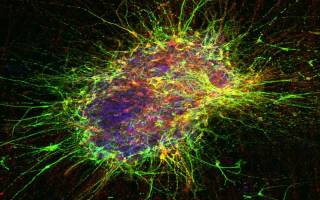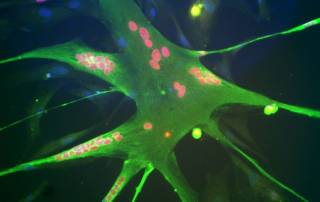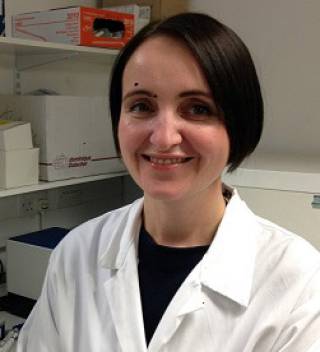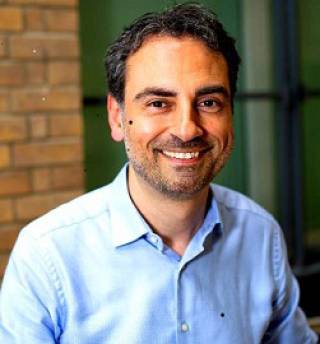The molecular neurosciences programme focuses on understanding the genetic and molecular causes of neuromuscular diseases with the ultimate aim of translating this knowledge into treatment of patients
A major aspect of our research programme is identifying the genetic causes of neuromuscular diseases, in particular muscular dystrophies and congenital myopathies. Identification of novel disease genes will improve diagnosis. In vitro and in vivo models are used to investigate the consequences of the genetic defect and ways in which it might be modified to therapeutic advantage.
We are using pre-clinical models and clinical trials to determine the efficacy of modifying gene splicing in neuromuscular diseases. Current work is focussing on regulating splicing of the SMN2 gene in spinal muscular atrophy and antisense-oligonucleotide-mediated exon skipping in Duchenne Muscular Dystrophy.
We are also investigating the contribution of skeletal muscle stem cells to muscle regeneration and ways in which environmental changes within skeletal muscle, as a consequence of muscular dystrophies, ageing or injury, might affect muscle repair and regeneration. We use pre-clinical models to determine whether muscle stem cells lentivirally mediated to express an optimal dystrophin construct might be an effective treatment for Duchenne Muscular Dystrophy.
Our basic research programme includes projects aimed at analysing mechanisms underlying the development and repair of muscle, the role of cell adhesion in innervation of muscle and mechanisms regulating the attachment and structural integrity of muscle fibres.
Clinical trials currently underway include antisense oligonucleotide -mediated exon skipping and heart protection studies, a natural history and an imaging study in Duchenne Muscular Dystrophy and investigating the efficacy of olesoxime in Spinal Muscular Atrophy patients.
|
|
|
|
|
 Close
Close


